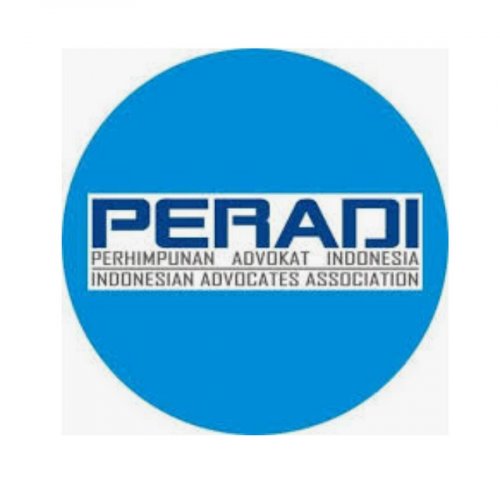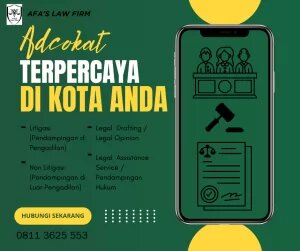Best Natural Resources Lawyers in Jakarta
Share your needs with us, get contacted by law firms.
Free. Takes 2 min.
List of the best lawyers in Jakarta, Indonesia
About Natural Resources Law in Jakarta, Indonesia
Natural Resources Law in Jakarta, and Indonesia as a whole, focuses on the management, utilization, and conservation of the country's abundant natural resources. Indonesia, with its tropical climate and rich biodiversity, is home to vast reserves of minerals, forests, and petroleum resources. In Jakarta, the nation’s capital, legal frameworks for managing these resources are crucial. These laws aim to balance development goals with environmental sustainability and align local practices with international environmental standards.
Why You May Need a Lawyer
Individuals and businesses may require legal assistance in the field of Natural Resources for various reasons. Common situations include:
- Negotiating and drafting contracts for resource exploration and extraction.
- Resolving disputes over land use and resource rights.
- Navigating the regulatory approval process for resource-related projects.
- Addressing environmental compliance and liability issues.
- Ensuring adherence to policies regarding resource conservation and sustainable use.
Legal expertise is crucial in these areas to ensure compliance with complex laws and to protect the rights and interests of all stakeholders involved.
Local Laws Overview
Jakarta follows the national legal framework regarding Natural Resources, with specific regulations that cater to its urban context. Key aspects include:
- Environmental Management Act: Governs the management and protection of the environment, aiming to prevent pollution and degradation.
- Mining Law: Deals with mineral and coal mining sectors, defining the rights and obligations of stakeholders involved in exploration and extraction.
- Forestry Law: Regulates the conservation and utilization of forest resources, setting standards for sustainable forest management.
- Land Use Regulations: These laws determine how land can be used and developed, impacting resource extraction projects.
- Water Resources Law: Governs the use and management of water resources, ensuring sustainable, equitable, and environmentally friendly use.
Frequently Asked Questions
What is the significance of obtaining permits for resource extraction in Jakarta?
Permits are essential as they authorize legal exploration, ensure compliance with regulations, and help in managing resource usage sustainably while protecting environmental and community interests.
How does Indonesia address illegal resource extraction?
Indonesia has stringent penalties for illegal extraction, including fines and imprisonment. It employs enforcement agencies to monitor and control illegal activities.
What role do environmental impact assessments play in resource projects?
They are mandatory to evaluate potential environmental effects and to develop strategies to mitigate adverse impacts before project commencement.
Are foreign companies allowed to invest in Indonesia's natural resources?
Yes, foreign entities can invest but must comply with specific regulations, including ownership constraints and partnership requirements with local entities.
What legal recourse is available if a project causes environmental harm?
Victims can file complaints or lawsuits for compensation and restitution, and authorities may impose sanctions on responsible parties.
How does the government ensure sustainable management of resources?
Through policies promoting conservation, reforestation, renewable energy projects, and community involvement in resource management.
Are there specific laws for marine resources in Jakarta?
Yes, the Fisheries Law regulates marine resource exploration and protection, ensuring sustainable practices and conservation.
What is the process for resolving land disputes related to resource extraction?
Disputes can be resolved through mediation, arbitration, or legal proceedings in formal judicial settings with the help of legal professionals.
How does Indonesia integrate indigenous rights into its natural resource laws?
Laws recognize indigenous land rights, requiring consultation and consent for projects affecting their lands and ensuring benefit-sharing mechanisms.
What is meant by sustainable resource management?
It involves using resources in a way that meets current needs without compromising future generations' ability to meet theirs and includes practices like conservation and efficient resource use.
Additional Resources
Several resources can aid those seeking legal advice on Natural Resources in Jakarta:
- Ministry of Environment and Forestry: Provides guidance on environmental laws and policies.
- Indonesian Mining Association: Offers insights and resources for the mining industry.
- Center for Environmental Law: An institution focused on promoting environmental governance.
- Natural Resources Conservation Agency: Specializes in conservation initiatives and sustainable management practices.
- Legal Aid Organizations: Offer legal assistance to individuals and communities involved in resource-related issues.
Next Steps
If you need legal assistance regarding Natural Resources in Jakarta:
- Identify the specific legal issue or area where you need assistance (e.g., mining permits, environmental compliance).
- Consult with a lawyer specializing in Natural Resources Law to assess your case.
- Prepare any relevant documentation, such as contracts, permits, or records of disputes, to facilitate the legal process.
- Consider mediation or alternative dispute resolution mechanisms if you seek to resolve conflicts without litigation.
- Keep informed about updates and changes in laws that may affect your interests in natural resources.
Having skilled legal counsel is crucial to navigate the complexities of Natural Resources Law effectively and ensure that your projects align with legal and environmental standards.
Lawzana helps you find the best lawyers and law firms in Jakarta through a curated and pre-screened list of qualified legal professionals. Our platform offers rankings and detailed profiles of attorneys and law firms, allowing you to compare based on practice areas, including Natural Resources, experience, and client feedback.
Each profile includes a description of the firm's areas of practice, client reviews, team members and partners, year of establishment, spoken languages, office locations, contact information, social media presence, and any published articles or resources. Most firms on our platform speak English and are experienced in both local and international legal matters.
Get a quote from top-rated law firms in Jakarta, Indonesia — quickly, securely, and without unnecessary hassle.
Disclaimer:
The information provided on this page is for general informational purposes only and does not constitute legal advice. While we strive to ensure the accuracy and relevance of the content, legal information may change over time, and interpretations of the law can vary. You should always consult with a qualified legal professional for advice specific to your situation.
We disclaim all liability for actions taken or not taken based on the content of this page. If you believe any information is incorrect or outdated, please contact us, and we will review and update it where appropriate.
















